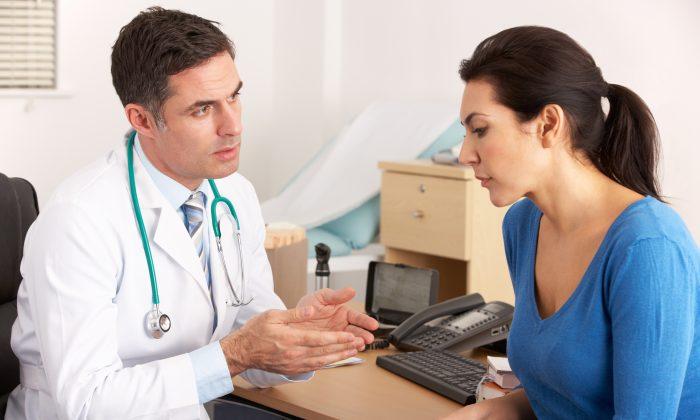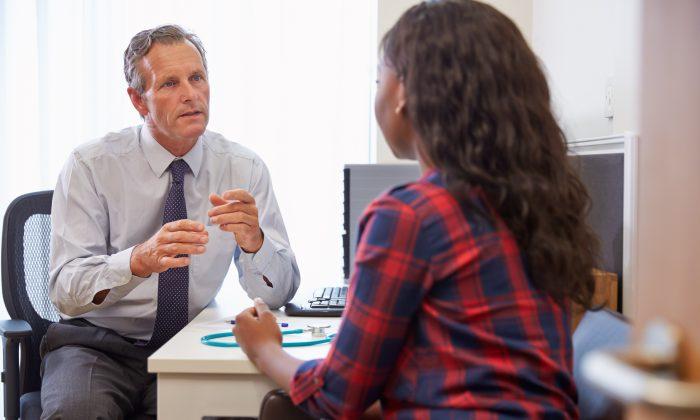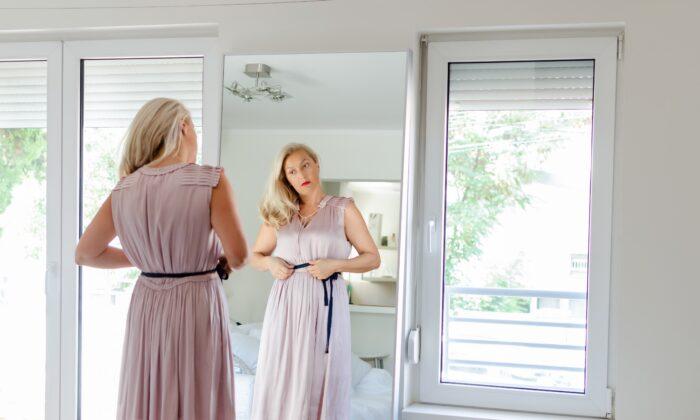My fear was steadily rising in the days leading up to my diagnosis, but when the word finally came, it landed like a punch in the stomach.
“You’re going to need a colonoscopy.” That’s what the gastroenterologist told me on Nov. 11, 2017, after our short 10-minute consultation.
Despite our quick interaction, I can’t say that I was surprised by his recommendation. All throughout our appointment, I had explained that I was not feeling well, with belly pains in my lower abdomen and severe constipation that I was “managing” by drinking a cap full of Miralax stool softener in a cup of water each night.
As I sat in my living room on Dec. 13, 2017, the eve of my first colonoscopy, a sick feeling started to come over me. Yes, it was partly due to the fact that I was drinking a pitcher of lemonade spiked with Miralax to cleanse my bowels for the procedure, but mostly it was because I knew that I’d probably be getting some information the next day that I didn’t want to hear.
At 2:30 p.m. the next day, I arrived at the outpatient surgical center where my gastroenterologist was located and waited in a crowded room for what felt like an eternity. My father, mother, and brother all came with me.
Finally, my name was called, and it was my turn to go in. I was taken to a small room for pre-procedure evaluation, where they took my temperature and other vitals, plus a urine sample. Afterward, I changed into a hospital gown and was asked to take off my pants and underwear, but to keep on my sports bra and socks.
The nurse then walked me into a surgical suite where I saw my doctor, who was behind a surgical mask. It was all very surreal. I had never had surgery or anesthesia before, so I was very nervous and felt like I was having a bad dream.
I got up on the operating table and laid on my left side. The anesthesiologist introduced herself to me, inserted an IV into my arm, and I drifted away into la-la land in less than a minute.
My next memory was slowly opening my eyes in a curtained-off post-procedure area, with a nurse checking in on me every few minutes. As I came back to reality, she let me rest a few minutes, then asked me to get dressed and meet her outside the curtain.
As I dressed, I started to hear other patients next to me get their results. “Hey, everything looks good,” one person was told. “No problems, everything looks fine,” someone else heard.
“Hey, wait a minute,” I thought. What about me? Where is my good news, or words of encouragement? Nobody said a word to me.
That was the moment I realized I was facing a different outcome.
I came out and met the nurse. She sweetly took my arm and led me to a small, private room. “Have a seat. The doctor will be here in a minute,” she said. “Would you like a warm blanket?”
I said, “Sure, why not?” She came back and carefully wrapped me up, then my doctor walked in.
“We found a mass, and we couldn’t finish the procedure because the scope could not fit past it. We’ve taken a biopsy and tattooed it. Do you want to see the images from the procedure?” he asked.
“Sure, why not?” I said.
He showed me the mass and it looked big and ugly, but the word “cancer” didn’t come out of his mouth.
At this point, I was in a haze, a crazy fog, but appeared cool as a cucumber on the outside.
The next thing I knew, I had an appointment at 8:30 the following morning with this surgeon. My head was starting to really get dizzy at this point.
The doctor asked me, “Do you have any more questions?”
I asked, “Is this cancer? Are you sure this is cancer?”
He replied, “We won’t know until the biopsy for sure, but I’ve been doing this a long time, and yes, it is cancer.”
I didn’t start to cry until I got up to leave and the doctor gave me a genuine hug.
He said, “You are young and in good health, so good luck with everything.”
At that point, my emotions took over and I was sobbing and felt a strange combination of shaking and numbness take over my body.
Somehow, I managed to get to the bathroom, washed away my tears, and went out to the waiting room to get my family so we could leave.
I decided not to tell them yet, and only mentioned that they had found a mass that was getting biopsied. I kept my composure during the car ride back to my house, though I don’t know-how. But I was dead inside. I needed time alone to process this devastating news, at least for one more day.
Join me next time when I share what happened during my visit with a colorectal surgeon 17 hours after my diagnosis, which I handled all by myself.
Until then ... breathe deep, be kind, and take it one day at a time.






Friends Read Free